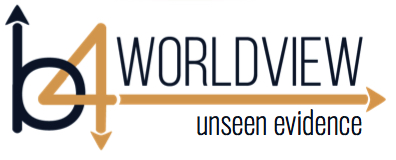
Key Thought for this session:
“Without the context of a bigger stage, BEING TRUE TO SELF is a flattering allegiance to bias and voices of deception.”
Can people really live in a community where everyone, including the ones in power, gives without expectation of receiving, and receives with no obligation to return the favor. We have discussed that in Type 3 communities the members are devoted to those in authority for their goodness and then act toward each other from a heart of thanksgiving. There is a freedom from the reward/punishment systems, which influence behavior in Type 1 and Type 2 communities. This next story is about a father who governs his family as a Type 3 community. The following will be a good question for you to keep in your mind as we look further into this- “Can I ever have virtue that is not exchange based, or is this just an ideal that people talk about in the abstract?”
This is true story of a man who did select the non-exchange alternative, the one that is based on grace or unmerited favor. This story should give you confidence that you can act like this too, if you so choose. In the mid 1980’s one of the greatest feats in the game of golf was accomplished. Jack Nicklaus was arguably the greatest golfer of all time.
He was getting old and was at the end of his productive time as a professional golfer. He was playing in the Masters, one of the greatest golf tournaments in the world, as he had every year for over 20 years. This time he asked his 14 year of son to caddie for him. This was quite strange in that a golfer’s caddie is a very important part of winning and his son was very inexperienced for this assignment. So, it seemed like just a nice gesture and that Nicklaus was not thinking about competing for the tournament championship. Here is the way his son tells the story.
“I was delighted and somewhat overwhelmed that dad had asked me to caddie for him. We enjoyed the first 3 rounds and were half way through the last round when he started playing very well. So well that it began to seem possible he could win. I began seeing him not as dad, but as the great legend of golf that the world knew. By the time we reached the last hole, he was in the lead and it seemed he would even win. This would make him the oldest golfer to ever win a major golf tournament and so we stood in the midst of an historic moment. As he sank his final putt and the crowd was roaring and shouting his name, in the midst of his glory, his moment, he immediately turned his attention to me. He made his glory my moment. He looked me right in the eye as if no one else was there, and said, ‘my son, I love you.’ This was the greatest gift I had ever been given. My father shared his time of glory with me and I had done nothing to earn it.”
Nicklaus was known as an incredible golfer, but in this moment, he selected the Type 3 behavior. He chose to give his son unmerited favor, just like the father in the previous story did whose son had disgraced his father but had returned home to him. Grace based action that does not involve exchange IS possible. It is real and it is a gift that has incredible impact on others.
We have been discussing how our understanding of situations is heavily biased by aspects of our human nature, personal identity, and social identity. Let’s see how you feel about these influences.